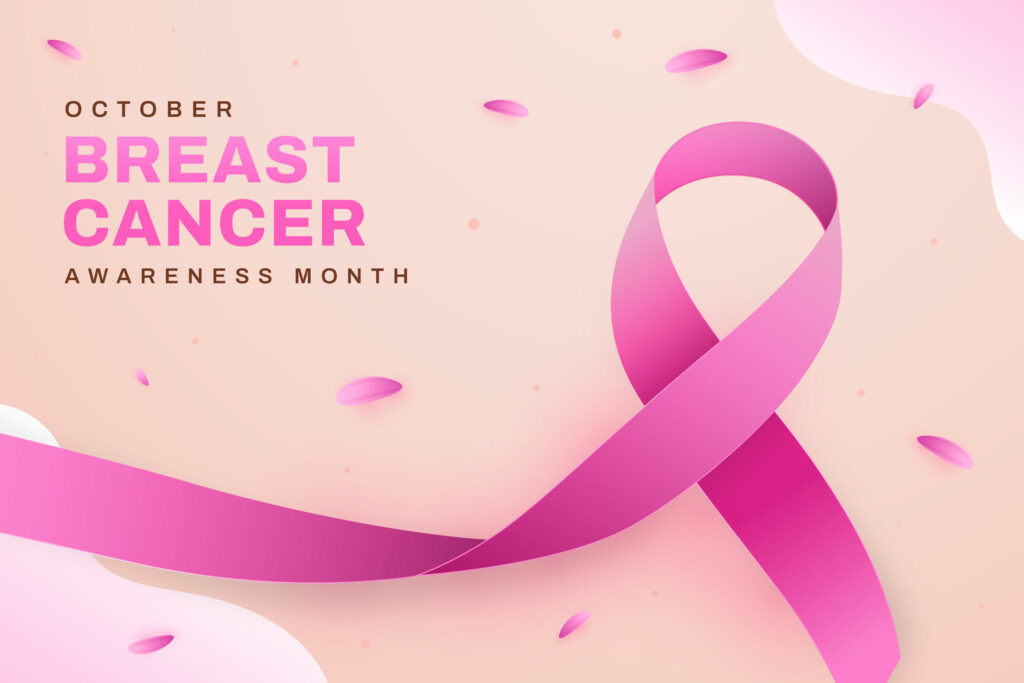
Enhancing Women’s Health CME: The Importance of Breast Cancer Awareness
In October, we observe Breast Cancer Awareness Month to increase education and awareness about a cancer that affects about 300,000 people each year in the United States, 40,000 of whom die from it. That’s why it’s so important to incorporate Women’s Health CME into your programming!
Every October, organizations like the National Breast Cancer Foundation, the Centers for Disease Control and Prevention, and Susan G. Komen launch campaigns to educate and advocate for early detection and access to timely, high-quality care. According to Susan G. Komen, for example, the COVID-19 pandemic highlighted the inequities in breast cancer treatments for under-resourced communities across the country, as well as the inequalities in treatment between Black and white women: Black women in the U.S. are about 40 percent more likely to die from breast cancer than white women.
Throughout the year, and especially in October, women and men are encouraged to take action in understanding their risk for breast cancer. This includes getting an annual mammogram starting at age 40, becoming familiar with how their breasts normally feel, making healthy lifestyle choices, and supporting research and funding to combat this potentially deadly disease. Men, though at significantly lower risk than women, should also be aware of these measures.
Further, education can be critical in making decisions about screening: According to a study in the Journal of the Menopause Society, a significant number of women’s healthcare providers showed important knowledge gaps about the implications of breast density. Only about half knew women with extremely dense breasts had four to six-fold greater breast cancer risk than those with fatty breasts, for example. Post intervention, such knowledge gaps were resolved or reduced, and comfort in discussing breast density implications increased.
Benefits of Women’s Health CME
Women’s health CME (Continuing Medical Education) offers numerous benefits to healthcare providers and, by extension, their patients. Here are some key advantages:
1. Up-to-Date Knowledge on Women’s Health Issues
Women’s health CME provides healthcare professionals with the latest information on a wide range of topics, such as reproductive health, menopause, breast cancer, osteoporosis, heart disease, and mental health issues, ensuring they stay current with medical advances and evidence-based practices.
2. Improved Patient Care
By staying informed about the latest treatments, diagnostic techniques, and preventive measures, healthcare providers can offer higher-quality care, leading to better patient outcomes, particularly in areas like early detection of diseases and personalized treatment plans.
3. Specialized Expertise
Women’s health CME allows providers to deepen their knowledge in specialized areas, like maternal health, breast health, or fertility, enabling them to cater to specific patient needs and expand their practice into niche areas of healthcare.
4. Career Advancement
Earning CME credits in women’s health demonstrates a commitment to professional development and can lead to career growth. Providers who complete these courses often improve their credentials, which can open doors to leadership roles or specialized positions in women’s health care.
5. Compliance with Licensing Requirements
Many states and medical boards require healthcare providers to complete CME credits as part of their licensure renewal. Women’s health CME ensures that providers meet these mandatory requirements while improving their competency in an area critical to healthcare.
Women’s Health CME benefits both healthcare providers and patients, enhancing knowledge, skills, and patient care in critical areas of women’s health.
This article is brought to you by Skin, Bones, Hearts & Private Parts, a leading provider of In-Person, Virtual and Online CME for Nurse Practitioners, Registered Nurses, Physician Assistants, and Physicians. Learn more.
